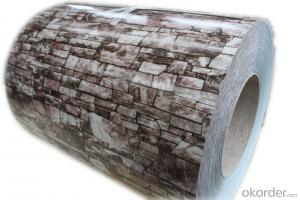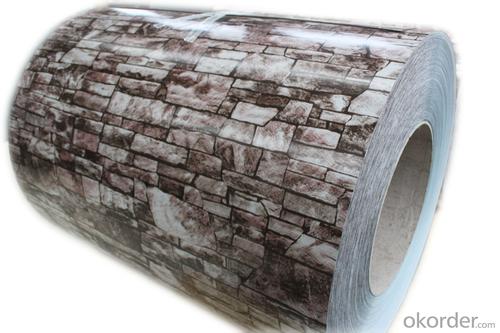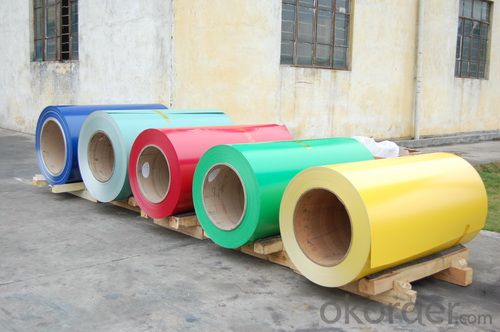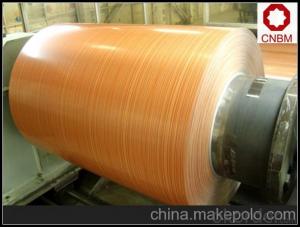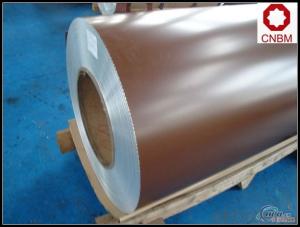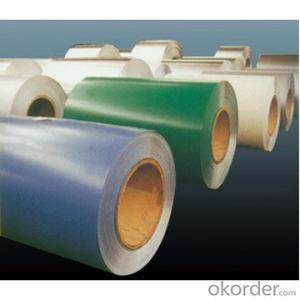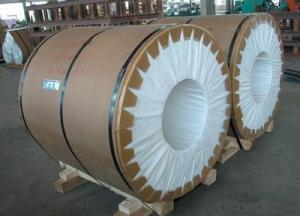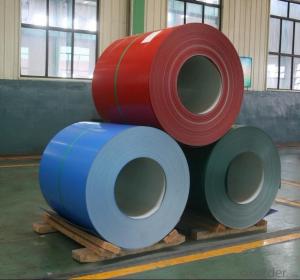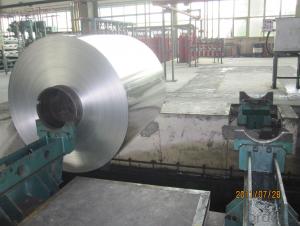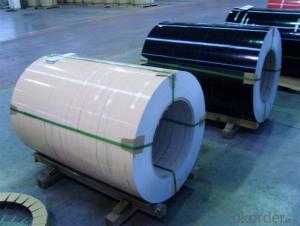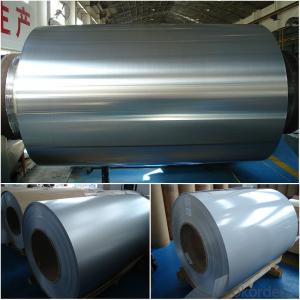5083 Aluminum Coil for Sale - Color Coator Aluminum Coil for ACP Walls
- Loading Port:
- Shanghai
- Payment Terms:
- TT OR LC
- Min Order Qty:
- 5 m.t.
- Supply Capability:
- 10000 m.t./month
OKorder Service Pledge
OKorder Financial Service
You Might Also Like
Specification
1. Structure of Color Coator Aluminium Coil for ACP Walls Description
• Product: Aluminim coils
• Application:
corrugated roofs, outer walls, ovens, electrically controlled cabinets.
household appliances, transportation, base plate, color coating.
industrial freezers in the residential and industrial buildings.
refrigerator backplane, gas stove, air conditioner, microwave, LCD border.
• Advantage: Full production line with all kinds of coils supply
2. Main Features of the Color Coator Aluminium Coil for ACP Walls
• Our goods quality is top, the surface is smooth, and every steel coil
• No Joint, No Bends, no spots, no roller marks.
• MTC will be provided with goods, third part inspection is acceptable, for example, SGS, BV. Etc
3. Color Coator Aluminium Coil for ACP Walls Images
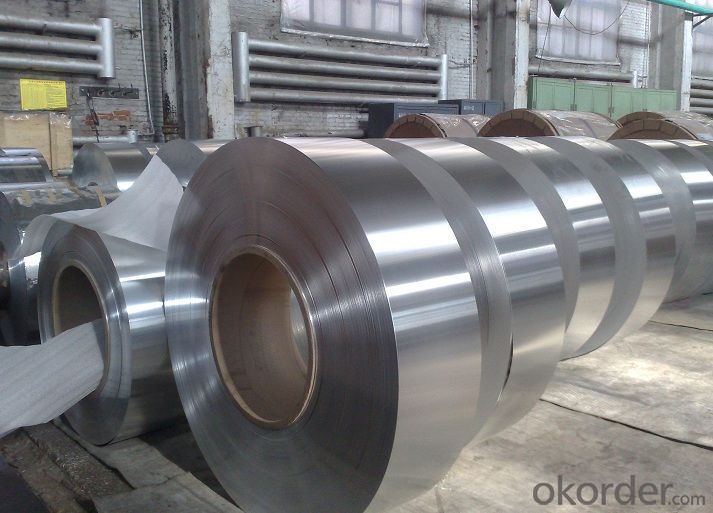
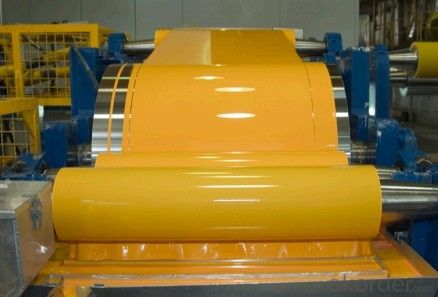
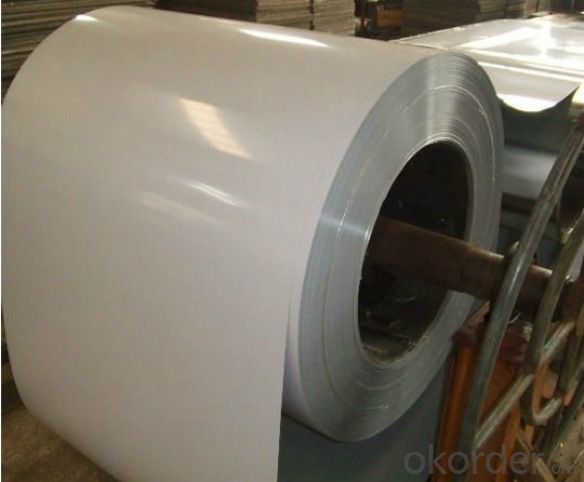
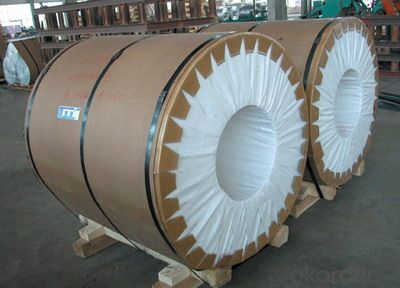
4. Color Coator Aluminium Coil for ACP Walls Specification
Alloy | AA1050/1100/3003/3005/3105/5005/5052 etc |
Thickness | 0.03mm—4.0mm |
Width | 10mm—1600mm |
Coating | PVDF, PE |
Coatingthickness | Usually16-25 micron, could be 33-40 micron |
Color | According to Ral |
Standard | ASTM-B 209 GB/3008-2006 |
Usage/ApplicationsCoated Aluminum Coil/Sheet | Constructionand decoration, electronic appliances, lighting decoration, air-condition airpipe, sandwich panels and drainage, etc |
5.FAQ of Color Coator Aluminium Coil for ACP Walls
We have organized several common questions for our clients,may help you sincerely:
① How about your company?
A world class manufacturer & supplier of aluminum coil and alloy blanks. Aluminum production base is comprised of 18 aluminum annealers, 10 coil and foil mills, 4 continuous production lines, 2 hot rolling production line and 3 prepainted lines.
Export 5000 tons per month to Asia, America and Middle East. Always do the best for our clients.
②Can you guarantee the quality of the products?
We are responsible for the quality of materials to get a long-term cooperation with clients in a reasonable period of time and we are glad to arrange and coordinate any third party inspection for you.
③What is the delivery time after purchase?
35 day after receiving client’s deposit or correct LC
- Q: Are there any limitations to the minimum coil width of aluminum coils?
- Yes, there are limitations to the minimum coil width of aluminum coils. These limitations depend on various factors such as the type and thickness of the aluminum, the specific manufacturing process, and the equipment used. Generally, the minimum coil width is determined by the capabilities of the rolling mills or slitters used in the production process. These machines have certain minimum width settings that cannot be exceeded. Additionally, extremely narrow coil widths may pose challenges in terms of handling, transportation, and processing.
- Q: What are the common alloys used in aluminum coil production?
- The common alloys used in aluminum coil production are 3003, 3105, 5052, and 6061.
- Q: What are the width tolerances for aluminum coils?
- The width tolerances of aluminum coils can differ based on the specific application and industry standards. Generally, the typical range for standard width tolerances is between +/- 0.005 inches to +/- 0.020 inches. These tolerances guarantee that the width of the aluminum coil remains within an acceptable range and meets the necessary dimensions for the intended use. It is important to mention that tighter tolerances may be attainable depending on the manufacturing processes and equipment capabilities. Thus, consulting the appropriate industry standards and specifications is crucial in determining the precise width tolerances needed for a specific application.
- Q: Can aluminum coils be used in marine applications?
- Yes, aluminum coils can be used in marine applications. Aluminum is a popular choice for marine applications due to its excellent corrosion resistance, lightweight nature, and high strength-to-weight ratio. It is commonly used in the construction of boats, ships, and other marine structures. Aluminum coils are particularly useful in marine applications as they can be easily formed into various shapes and sizes, making them suitable for different parts and components in the marine industry. Additionally, aluminum coils can withstand harsh marine environments and are highly resistant to saltwater corrosion, which is a significant concern in marine applications. Overall, the use of aluminum coils in marine applications is a reliable and effective choice.
- Q: What is the composition of aluminum coils?
- Aluminum coils are typically composed of pure aluminum or an aluminum alloy. Pure aluminum coils consist of 99.5% aluminum, with trace amounts of other elements. Aluminum alloys, on the other hand, are made by combining aluminum with other metals such as copper, magnesium, manganese, or zinc. These alloys are specifically designed to enhance the strength, corrosion resistance, and other desired properties of the aluminum coils. The exact composition of aluminum coils may vary depending on the specific application and requirements, but they generally contain a high percentage of aluminum along with small quantities of other elements to create a more durable and efficient product.
- Q: How much fluorocarbon and polyester paint should be used in production of aluminum coil and aluminum-plastic panel?
- The theoretical calculation is very complicated and far from actual result. In general, the manufacturer knows how much area and how thick their products can be painted.
- Q: This question asks for an explanation of the various materials used for coating aluminum coils.
- <p>Aluminum coil coating materials can be categorized into several types, including: 1. Organic coatings, such as polyester, acrylic, and polyvinylidene fluoride (PVDF), which offer good weather resistance and color stability. 2. Inorganic coatings, like fluoropolymers, which provide exceptional chemical resistance and high-temperature stability. 3. Metal coatings, such as zinc or other metals, used for enhanced corrosion resistance. 4. Ceramic coatings, which are known for their high durability and resistance to heat and chemicals. 5. Laminates, which combine multiple materials for specific performance characteristics. These coatings are chosen based on the intended application of the aluminum coil, such as in construction, automotive, or packaging industries.</p>
- Q: How are aluminum coils used in gutter systems?
- Gutter systems commonly incorporate aluminum coils due to their durability and resistance to corrosion. These coils enable the creation of seamless gutters that are custom-fitted to the specific dimensions of a structure, preventing water damage to the roof and foundation. To begin the process, an aluminum coil is fed through a specialized machine known as a gutter machine. This machine transforms the coil into a gutter shape, typically in a continuous length that can extend the entire length of the roofline without any seams. The coil is molded into a trough-like structure with a slight slope, facilitating the easy flow of water towards downspouts. Aluminum is an ideal material for gutter systems because it is lightweight yet robust, simplifying installation and minimizing the risk of sagging or bending. It is also highly resistant to rust and corrosion, ensuring the longevity of the gutter system even in harsh weather conditions. Additionally, aluminum can be easily painted or coated to match the aesthetic of the building. Once the seamless gutters are formed from the aluminum coil, they are typically secured to the roofline's edge using hangers or brackets. Downspouts are then affixed to strategic points on the gutters to redirect the collected rainwater away from the building's foundation. These downspouts can also be fashioned from aluminum coils, maintaining a seamless and cohesive appearance throughout the entire gutter system. In conclusion, aluminum coils are utilized in gutter systems to produce seamless gutters that offer effective and efficient water drainage. Their durability, resistance to corrosion, and ease of installation have contributed to their popularity in residential, commercial, and industrial buildings.
- Q: How do aluminum coils perform in high humidity environments?
- Aluminum coils perform well in high humidity environments due to their corrosion-resistant properties. The protective oxide layer on the surface of the aluminum helps prevent moisture damage, making them suitable for use in areas with high humidity levels.
- Q: Are aluminum coils suitable for electrical conductivity applications?
- Yes, aluminum coils are suitable for electrical conductivity applications. Aluminum is known for its excellent electrical conductivity, second only to copper among common metals. It has approximately 61% of the conductivity of copper, making it a reliable choice for various electrical applications. Aluminum coils are commonly used in power transmission, transformers, and electrical motors due to their ability to efficiently conduct electricity. Additionally, aluminum coils are lightweight, which makes them easier to handle and install in electrical systems. However, it is important to note that aluminum has a higher resistance compared to copper, so larger aluminum conductors may be required to achieve the same electrical performance. Overall, aluminum coils are a suitable option for electrical conductivity applications.
Send your message to us
5083 Aluminum Coil for Sale - Color Coator Aluminum Coil for ACP Walls
- Loading Port:
- Shanghai
- Payment Terms:
- TT OR LC
- Min Order Qty:
- 5 m.t.
- Supply Capability:
- 10000 m.t./month
OKorder Service Pledge
OKorder Financial Service
Similar products
Hot products
Hot Searches
Related keywords
